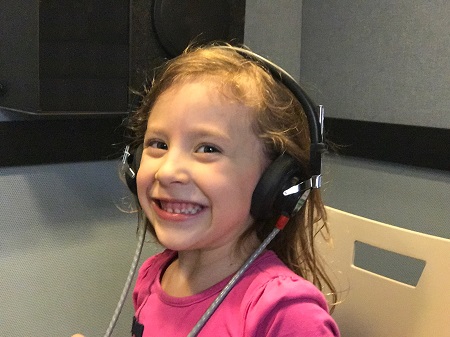If your child failed a school hearing test, you may be worried. Fortunately, while it’s definitely important to get this checked out by an ENT specialist, the cause is usually minor and treatable.
In many cases when a child fails one of these tests, it’s caused by an ear infection or pressure behind the child’s eardrum(s). That can sometimes cause just enough hearing loss that the child fails a school hearing screen.
In other situations, though, school screenings catch more serious hearing loss. This can be caused by an inherited disease, a virus affecting the inner ear, a head injury or something else.
Regardless of the severity of hearing loss, it’s critical to get any child who was flagged by a hearing test in to see an ENT specialist. If left untreated, even mild hearing loss can become more serious.
About school screenings
In Iowa, general hearing screenings are conducted in preschool, kindergarten and first grade. Screenings of students with a history of known hearing loss are conducted in preschool, kindergarten and grades one through five. Screenings of new students, those with suspected hearing concerns or those undergoing a special education evaluation are completed as needed.
These screenings are for hearing related to general speech. In other words, can the child hear general speech in the normal range? It’s a pass/fail test—the results are either “normal” or “abnormal.”
Finding the cause of hearing loss
If you bring your child to Iowa ENT Center after a failed hearing test, we’ll start with an evaluation by one of our trained staff. Based on that evaluation, we may recommend additional hearing testing at our clinic.
One thing we check for is the type of hearing loss the child is experiencing. This helps us determine what treatment is needed.
The two main types of hearing loss are:
- Sensorineural. This is the most common type of hearing loss. Sensorineural hearing loss is permanent and happens when nerve signals don’t get to the brain properly. It’s caused by either damage to the hair-like cells of the inner ear or to the auditory nerve.
- Conductive. This type of hearing loss happens when sound is prevented from being conducted to the inner ear. Conductive hearing loss can be temporary or permanent. Ear infections can cause conductive hearing loss.
One way we assess a child's hearing loss is by evaluating their responses to audial cues. We tailor our approach based on the age of the child. For very young children, we tell them to raise their hand when they hear the “birdie.” With somewhat younger kids, we ask questions like, “Where’s your shirt? Where are your shoes?” For older kids, we’ll have them repeat a word. “Say ‘ice cream.’ Say ‘football.’”
Another test we do is a bone conduction test. It’s done with a band around the child’s head. This helps us determine if the child has conductive hearing loss or sensorineural hearing loss.
Treatment for hearing loss in kids
Treatment depends on the type of hearing loss. Conductive hearing loss is typically medically treatable through antibiotics or, in some cases, surgery. For permanent, sensorineural hearing loss, options include hearing aids or implants (such as the Baha system or cochlear implants).
All of these options are available at Iowa ENT Center. Our physicians, physician assistants, audiologists and hearing aid specialist are all highly experienced at helping kids with a broad spectrum of hearing issues. For an evaluation, request an appointment online or call us at 515-223-4368.
